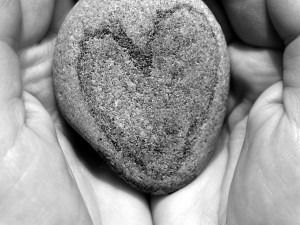 My parents took us on vacation at least once a year. When we were very small we traveled by car. My dad would carry us to the car in the middle of the night. We woke up in the morning 6-8 hours closer to our destination, ready to change out of our jammies and hungry for breakfast. I used to think his motivation for getting up at midnight to drive was motivated by his lifelong quest to avoid traffic, but now I realize the silence in the back seat with 4 small kids was the real motivation.
My parents took us on vacation at least once a year. When we were very small we traveled by car. My dad would carry us to the car in the middle of the night. We woke up in the morning 6-8 hours closer to our destination, ready to change out of our jammies and hungry for breakfast. I used to think his motivation for getting up at midnight to drive was motivated by his lifelong quest to avoid traffic, but now I realize the silence in the back seat with 4 small kids was the real motivation.
When we were a little older, we would go camping. We had a full sized camper my mom would pack with our clothes and all the necessary ingredients to make a meal out of whatever we brought her on our fishing hooks. One summer we drove to Texas and parked the camper in the driveway of a family friend. We took day trips to Mexico and even transported a standing suit of armor to New Jersey in the shower stall (my brother refused to go near the bathroom the entire ride home).
My first plane ride was a big deal (I don’t know if it was for everyone or we just felt that way because we drove everywhere). Like all special occasions, my mom made matching outfits for my sister and I (were were just one year apart in age) and my oldest sister would have a grown-up version from the same McCalls Pattern. My brother was the accessory for his older sisters – his pantsuit cut from the same fabric. I remember what I wore the first time I flew—a denim colored skirt and matching jacket with a collared shirt that buttoned up the front. The captain made a special trip out of the cockpit to pin wings on my extra long lapels acknowledging my first flight.
Nothing terrible ever happened to me on a plane, but I don’t like fly. Maybe it has to do with my fear of heights? I actively think about NOT thinking about being in a canister above the clouds. I don’t let my fear of flying get in the way of traveling, but it’s always there just below the surface.
I had a scheduled trip to Brussels during the Ebola outbreak and ISIS threats last year. Given Brussels was a hub for flights coming from West Africa I wasn’t sure if I should even go (I’m also germ-a-phoebic). After discussing it with my husband, the CDC and every medical professionals I know, I decided to go. I had a great time—I shopped, sat in outdoor cafes each afternoon and ate Mussels every night with Belgian beer or french wine.
On my flight home, there was a loud conversation behind me. The part that caught my attention was when I heard a man say, “that’s it, we’re leaving”. I looked back expecting to see a father trying to get his kid to behave, with only 10 minutes left before they shut the doors, what else would it be?
But he meant it. He pushed his way to the aisle with his wife and young son following behind — their eyes focused on the floor. They were middle eastern, though I don’t know enough about the cultures to be more specific than that. I hate to admit it, but my first thought was they were terrorists. Security scanned the plane for unaccounted for baggage so they must’ve thought so too.
Trying to distract myself, I turned to talk to the man next to me only to find out he was on his way home from Liberia. Nothing like a case of Ebola to distract me from the possible terrorist threat happening a few rows back. I pulled the Purell out of my purse and held my breath. It was a long flight so I was aware this particular tactic couldn’t be sustained through the entire flight, but I kept repeating the pattern.
I stopped holding my breath long enough to talk to the potential Ebola host in the seat next to me. He was the founder of Orphan Aid Liberia, a non-profit organization that helps orphaned children in Liberia find someone to care for them. While I was obsessing about which wine to order with my Mussels he was finding homes for kids orphaned by Ebola. He placed 400 kids in 2 weeks and he told me there were so many more.
It didn’t occur to me the adults who were dying left children behind and these kids watched their families die. I was struck by how invisible kids can be when it comes to grief. They move forward with little to no guidance surrounded by awkward moments from people who mean well but are not quite sure what to do either. I cried when he told me CDC protocol prohibited physical contact—how painful it must’ve been to watch these kids grieve and not be able to comfort them with a hug or a gentle touch.
November 19th is Children’s Grief Awareness Day. I’m sharing this story and asking you to acknowledge the grief a child feels in an effort to help them feel less invisible. Take a moment today to learn about how children are effected by grief.
For more information…
How to Show Support to Someone Who is Grieving
What (and What Not) to Say to Someone Who is Grieving
Children’s Grief Awareness Day
National Alliance for Grieving Children




